Over the past couple of years, the global consumption of peanuts keeps increasing. It’s no surprise given how versatile and nutritious it is. Given that peanuts are full of nutrients, can they be fed to animals? If you have rabbits, are peanuts something they can eat?
What’s A Peanut?
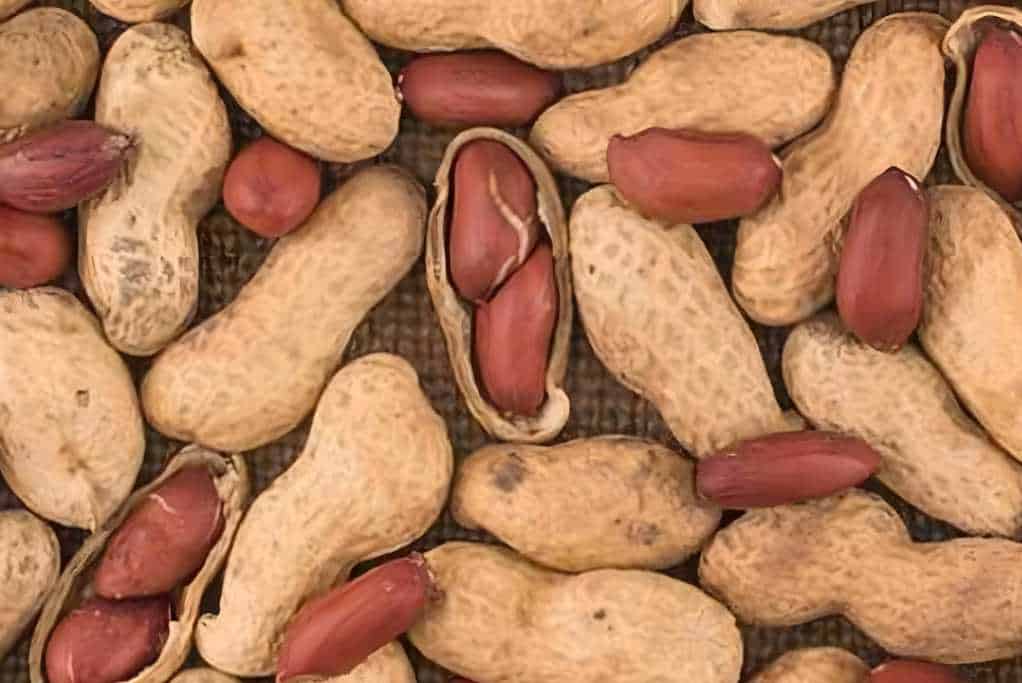
Did you know that peanuts are not actually nuts? Peanuts belong to the Legume family. This is far from many people’s belief that peanuts fall under Tree nuts. Despite their size, peanuts pack a lot of nutrients. Here are some of the vitamins and minerals in raw peanuts:
- Calcium
- Choline
- Folate
- Iron
- Phosphorus
- Potassium
- Manganese
- Magnesium
- Vitamin E
Despite the many health benefits that peanuts have, it’s not always safe for consumption. There are people who are allergic to peanuts. Some have severe allergic reactions, leading to anaphylaxis.
Since peanuts have its pros and cros, the question of if you can feed it to your rabbit looms. Is this something they can eat? Well here are some things you need to know before you do anything!
Should You Feed Your Rabbits Peanuts?
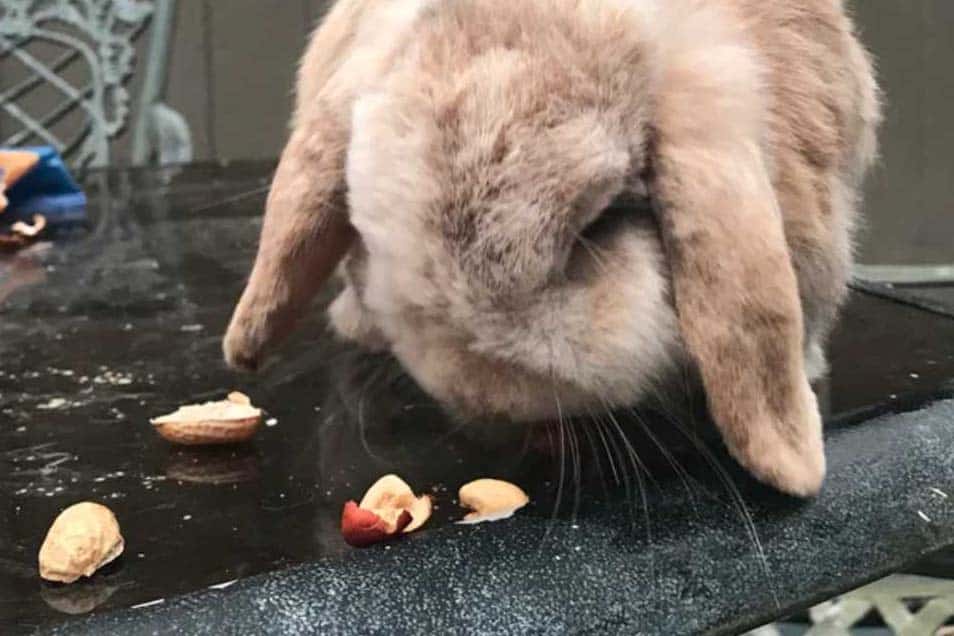
Rabbits are curious creatures. There might be times when they see something and think it’s food. That could be the case with peanuts. If they see peanuts, there’s a high chance of rabbits putting them in their mouths. However, generally, peanuts are not something rabbits should eat.
Some people out there think it’s perfectly fine to give rabbits peanuts from time to time. It’s like letting the rabbit get a taste of them. But for the most part, it’s better to keep peanuts away from rabbits. So in short, the answer is “no”!
If your rabbit accidentally ate a peanut, it’s not a cause for alarm just yet. If the rabbits have an adverse reaction to it, then that’s another story. As a rabbit owner, it’s your responsibility to keep certain things away from your rabbit, including certain food such as peanuts.
Also, consider peanuts a choking hazard. If peanuts are not broken into little pieces, they can get stuck in a rabbit’s throat.
Why Are Peanuts Not Good For Rabbits?
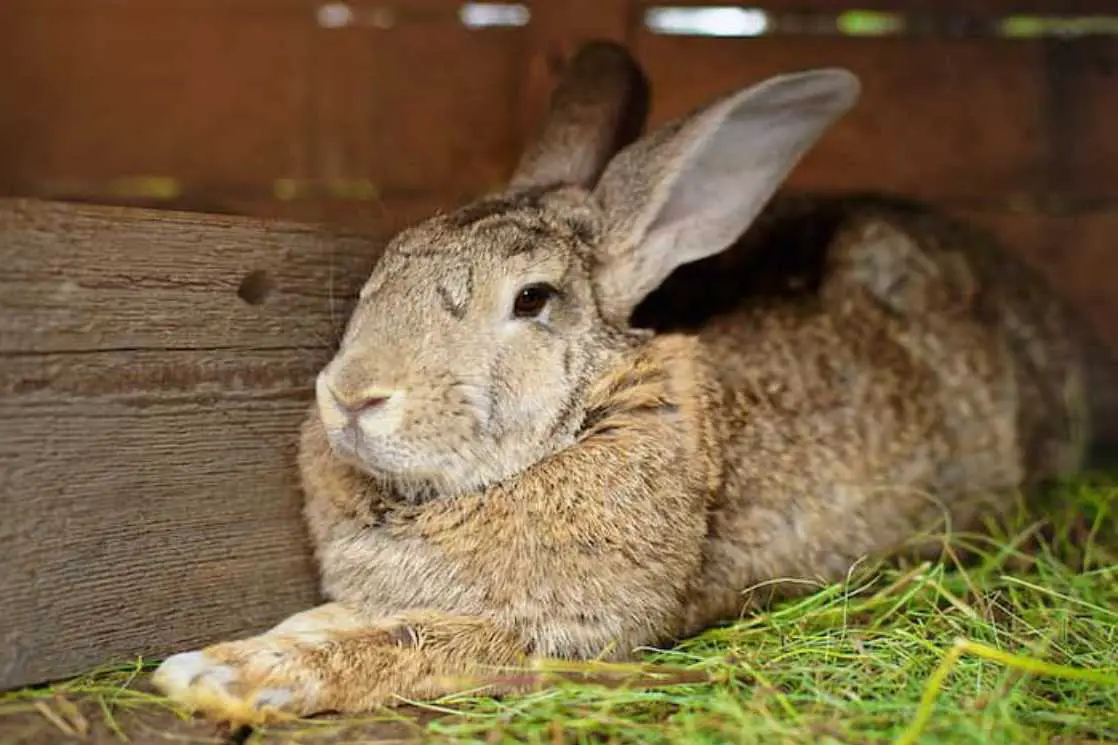
There are a couple of reasons why peanuts are not good for rabbits. Just like any other food, you have to look into it first before deciding if this is something you can feed your rabbits.
Low Fiber Content
If there’s one main thing a rabbit should have in its diet, it’s fiber. A rabbit needs a fiber-rich diet. Fiber is important in a growing rabbit’s nutrition, especially their digestive health. With that said, peanuts have low fiber content.
And while peanuts might contain some vitamins and minerals that rabbits need, it doesn’t really do much to the rabbits. The rabbit is better off eating something else.
High Fat And Carbohydrates
Peanuts contain a high percentage of fat and carbohydrates. A rabbit’s body can’t handle large amounts of fat. A diet high in both fat and carbohydrates is detrimental to the rabbit’s health for many reasons. Several health issues can develop if a rabbit lives off a diet that contains a lot of fat and carbohydrates.
What Happens When The Rabbit Eats Peanuts?
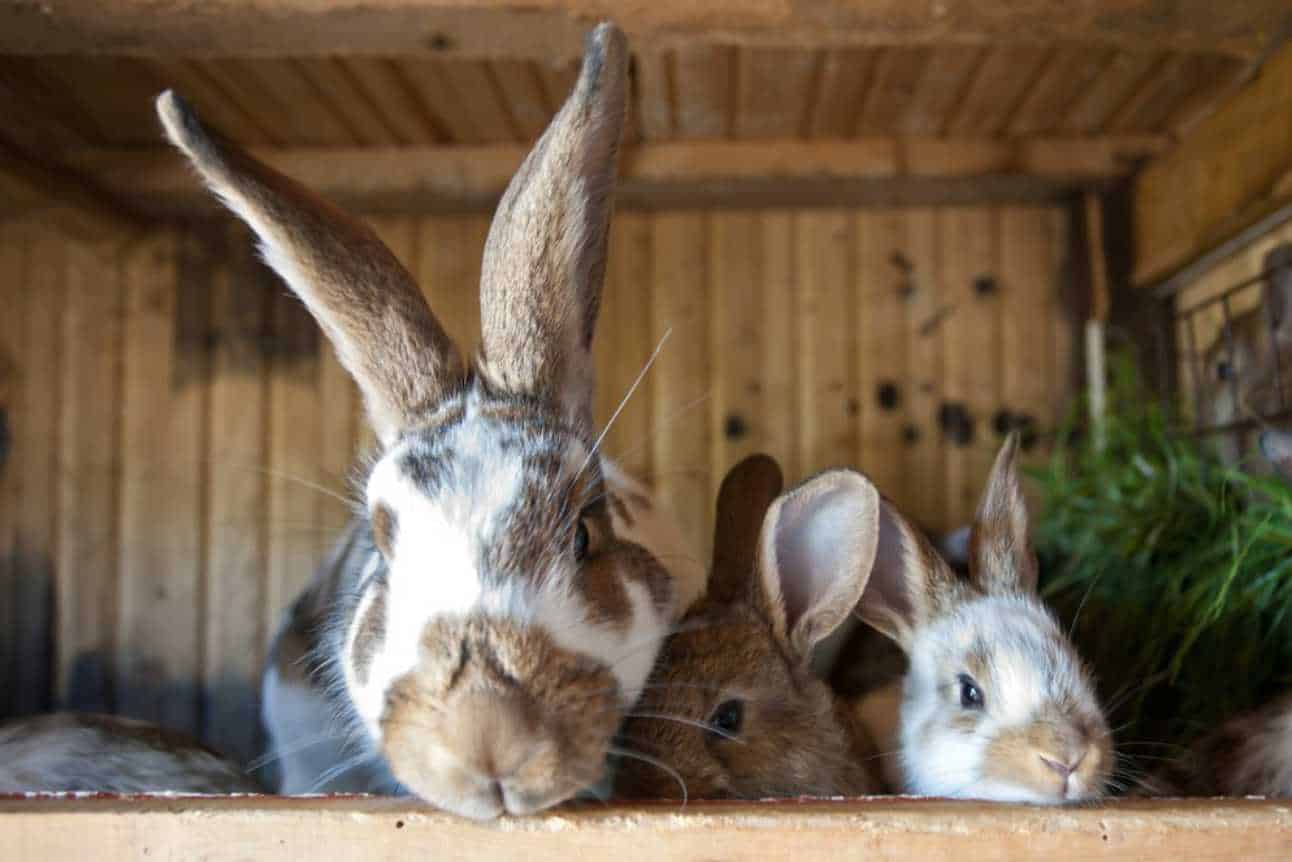
Rabbits should refrain from eating peanuts and any of their byproducts. A jar of peanut butter, for example, contains additives that are not necessarily healthy. As mentioned, various health concerns might arise. If rabbits don’t watch what they eat, they can develop the following:
Cardiovascular Disease
If a rabbit has too much fat in its system, it can lead to obesity. The excessive amount of body fat in the rabbit contributes to the development of Cardiovascular disease. It’s why peanuts and other fatty food should not be a part of a rabbit’s diet.
There should be adjustments to the rabbit’s diet if they are overweight. The extra weight that the rabbit carries puts a strain on their bodies, affecting their Cardiovascular system. It can even affect other parts of their bodies, including their skeletal system.
Gastrointestinal Statis
One of the major health issues that rabbits encounter in their lives is Gastrointestinal Statis or GI. If there is too much carbohydrates and fat in a rabbit’s system, this is a serious digestive concern.
When the rabbit does not have enough fiber but has excess carbs and fat in its GI tract, it disrupts the movement of the food. The slowdown interrupts the normal function of their digestive system. It also affects the pH level of the bacteria inside the gut, increasing gas buildup, which can cause discomfort and pain.
A rabbit with GI Stasis will exhibit its signs and symptoms slowly or suddenly. If the rabbit stops eating and drinking and their feces start looking odder than usual, they might be suffering from GI Statis. If you notice any changes to the rabbit, physically or behaviorally, then the odds of them going through something like GI Statis his high.
Can Rabbits Eat Other Types of “Nuts”?
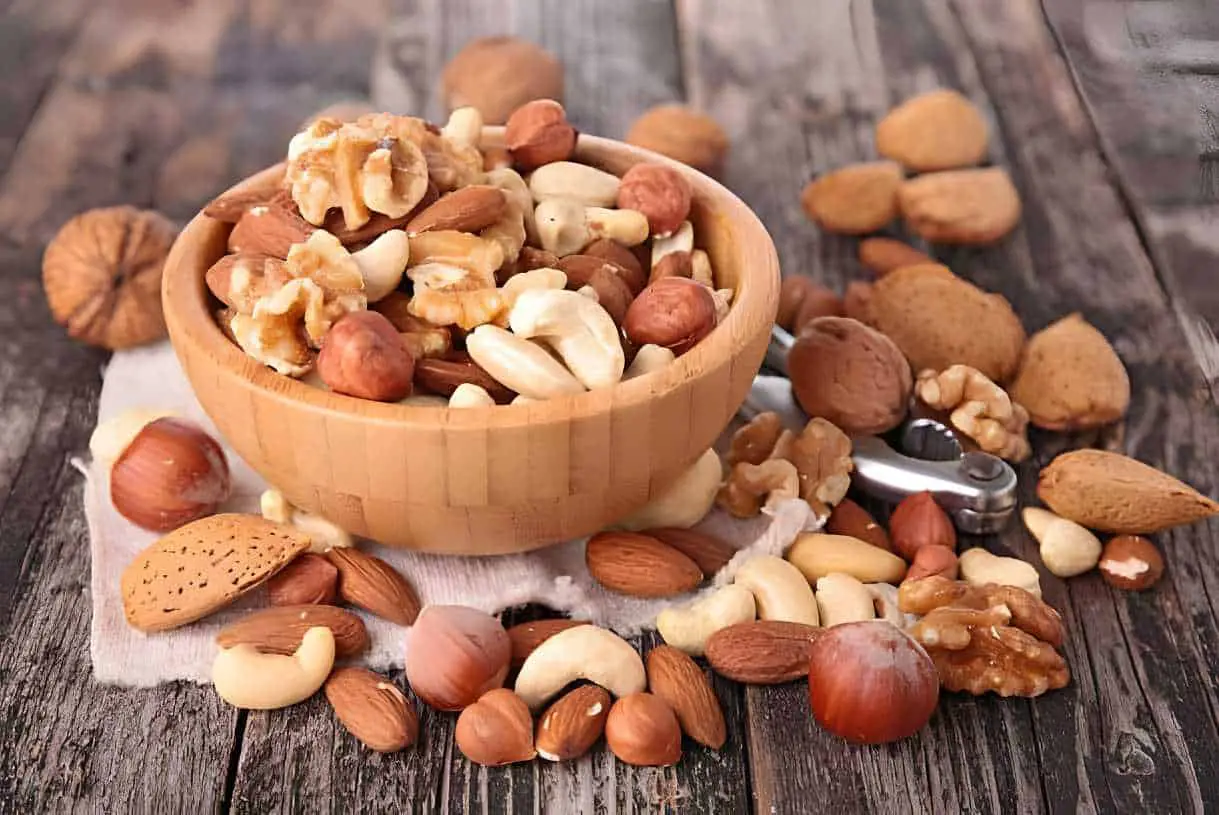
If you want your rabbit to be on the safe and healthy side, you should avoid anything that has “nut” in its name at all costs. Make sure you keep the following away from the rabbits:
- Almonds
- Cashews
- Chestnuts
- Walnuts
- Pistachios
- Hazelnuts
These are just some of the nuts that rabbits should not eat. If you come across other nut varieties, you might want to check if they are safe for rabbit consumption. However, for the most part, any kind of nut should be kept at arm’s length. Most of these nuts have high-fat content, which, as you now know, is not something good for rabbits.
What Are Alternatives To Peanuts?
There are plenty of alternatives to peanuts. Rabbits are herbivores, so there are many options available. Here are some you should consider when outlining your rabbit’s diet:
Hay
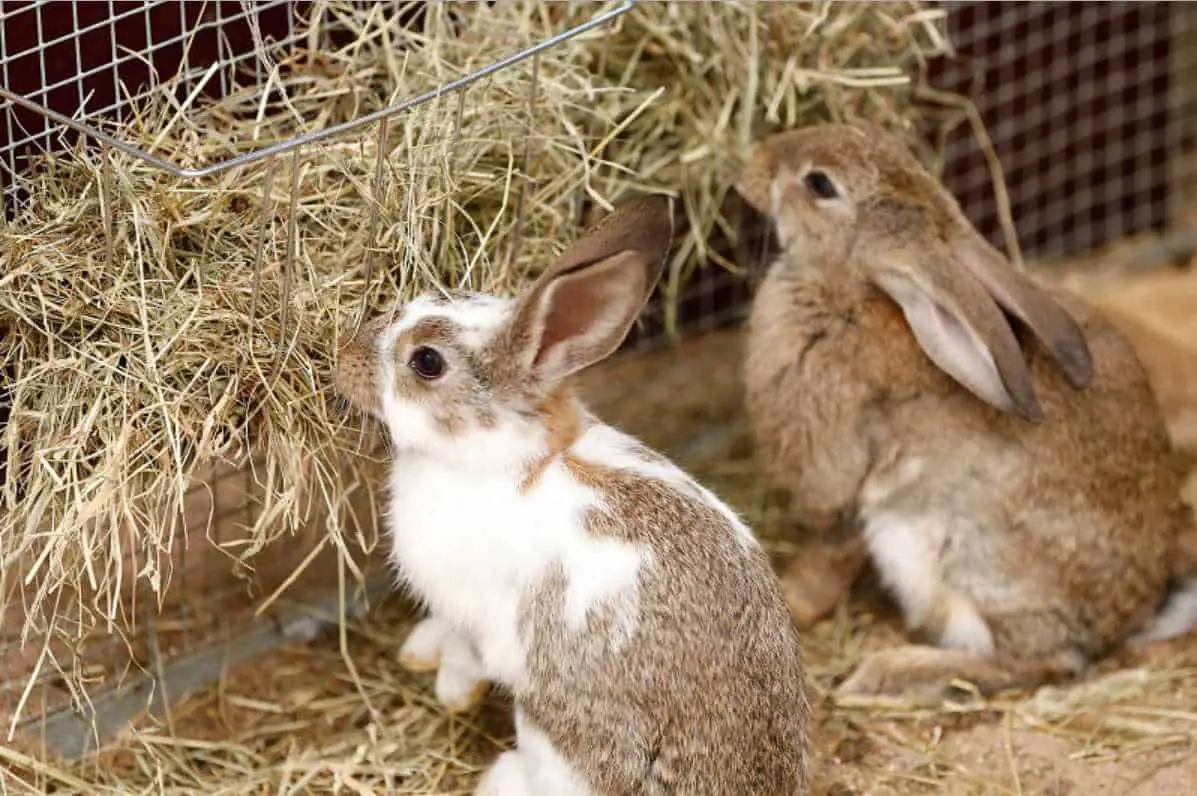
The main character in a rabbit’s diet is hay. They need about 80% of this. Rabbits need a lot of fiber in their diet, and there’s no better source than hay.
Hay and its fiber help rabbits with keeping their guts healthy. The indigestible fiber found in hay plays a key role in making the food move in a rabbit’s GI tract smoothly. As the food moves in their bodies, more and more nutrients are absorbed.
Hay is also crucial in wearing down a rabbit’s teeth. Since their teeth never stop growing, rabbits need to constantly grind and chew to wear them down. The fiber from hay is very helpful during this whole process. If rabbits are left with their ever-growing teeth, they can cause impaction and other dental problems.
There are many varieties of hay out there. But here are the top ones you should feed your adult rabbits:
- Meadow Hay
- Oat Hay
- Orchard Hay
- Timothy Hay
If you are dealing with a baby rabbit’s diet, Alfalfa Hay is suggested. Alfalfa Hay is full of nutrients, which is perfect for growing rabbits.
There are plenty of quality hay providers or suppliers. You can also get it from your favorite pet store. It’s just a matter of figuring out who they are and finding out if your rabbits will love their hay. If the hay is good, the rabbit will take a liking to it. If your rabbit refuses to eat hay, check what’s wrong with it. Some hay might carry molds and dust.
Pellets
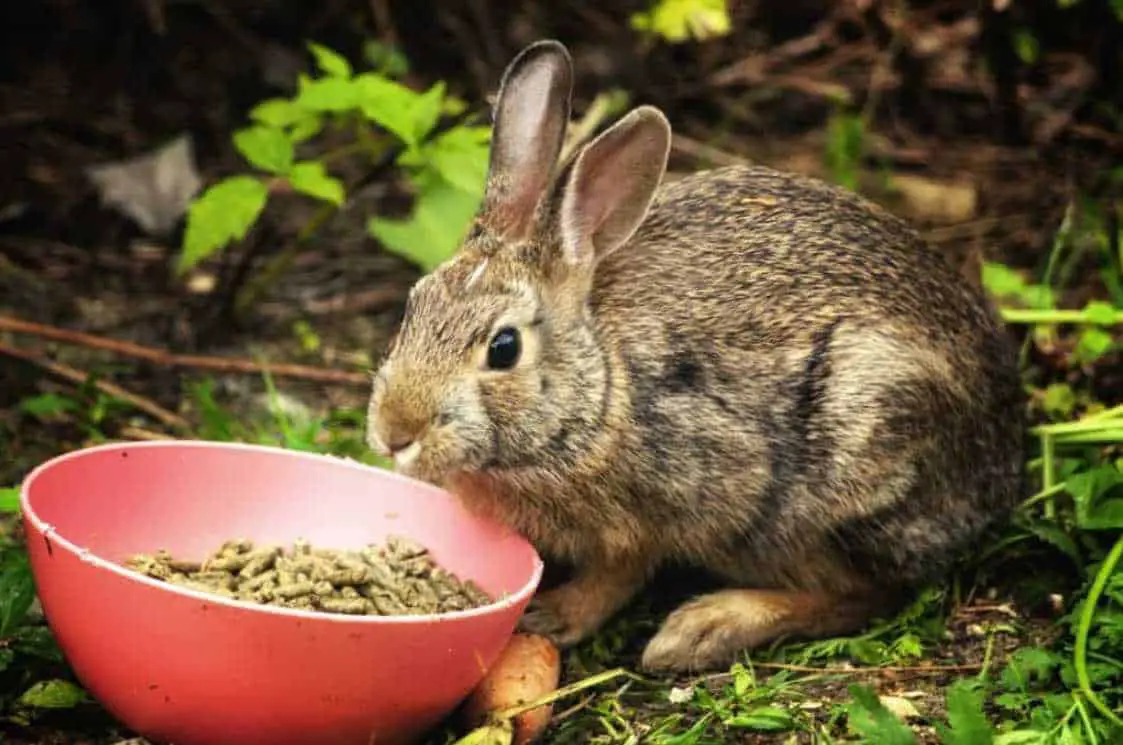
A rabbit needs a balanced diet. And while hay makes up most of that, there still needs to be other sources of nutrients. You can also feed them pellets. It’s a great addition to a rabbit’s diet.
Pellets are also made from hay. And they are filled with essential nutrients. Before purchasing pellets for the rabbits, look into the labels. It should tell you what the pellet is made of and other important details. There might be some pellets that have high-caloric content. Too much of this can lead to the rabbit gaining more weight.
Vegetables

The hay and pellets that are huge parts of a rabbit’s diet still need some supplement. It can be in the form of various green vegetables that are safe for rabbits to consume. Consider adding the following vegetables:
- Basil
- Beets
- Bok Choy
- Broccoli
- Carrot tops
- Cilantro
- Mustard Greens
- Romaine Lettuce
- Watercress
When serving these vegetables, they should come in moderation too. If they consume too much of any vegetable, it can cause an imbalance in the rabbit’s diet. You can combine different vegetables to make things interesting.
If you are thinking of feeding them other vegetables, check if those have fat, carbohydrate, or calcium content. If they are, it’s best to skip them and opt for something tested and proven.
Say No To Peanuts
Rabbits can’t eat peanuts. It should not be part of their daily diet. Whenever there are peanuts within a rabbit’s midst, you should do everything in your power to keep them away. If you want a healthy and active rabbit, a well-balanced diet is what they need!